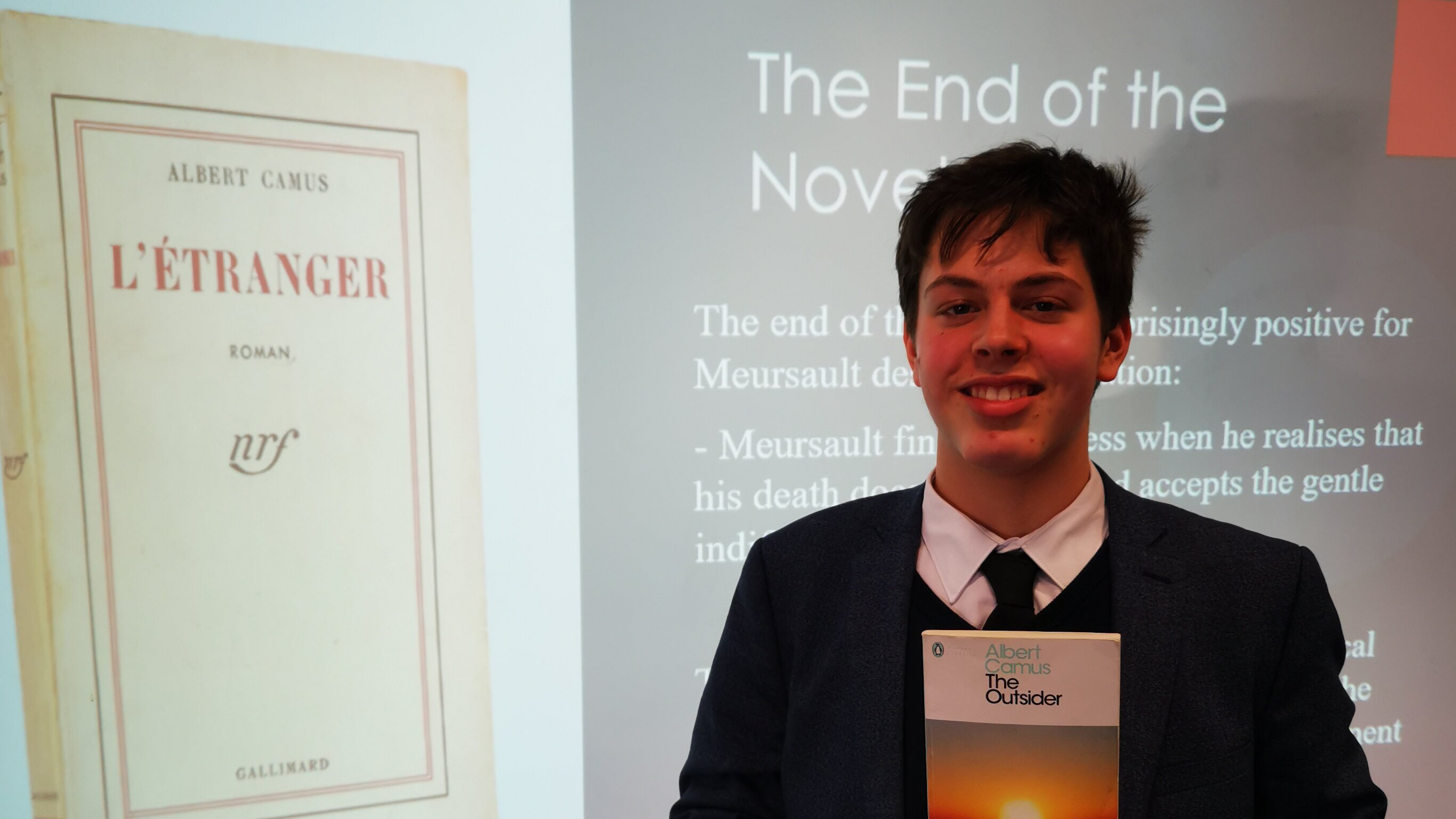Albert Camus Unpacked at The Herrick

Last Friday, Jacob Rose (Lower Sixth) made his impressive Herrick debut with a talk on the renowned, 20th century French philosopher, Albert Camus. The session offered a cerebral collaboration of Jacob’s literary zeal and philosophical perspicacity, and proved to be an absorbing insight into the works of Camus.
Last Friday, Jacob Rose (Lower Sixth) made his impressive Herrick debut with a talk on the renowned, 20th century French philosopher, Albert Camus. The session offered a cerebral collaboration of Jacob’s literary zeal and philosophical perspicacity, and proved to be an absorbing insight into the works of Camus, more specifically, ‘L’Étranger’ and ‘Le mythe de Sisyphe’.
For those who remain unfamiliar, Albert Camus was born on 7th November 1913 in Mondovi, French Algeria. He was most commonly known for his existentialist philosophical theory of ‘Absurdism’. An extrapolation of both Existentialism and Nihilism summarized by Jacob as an ‘embrace of the Absurd’ whereby the Absurd is the inherent ‘futility and meaninglessness’ of the world as we know it.
Jacob’s talk explored the dynamic between Mernault, the protagonist of ‘L’Étranger’ and his apathetic perspective of existence. This relationship is perfectly encapsulated within the commencing lines of the novella:
‘Aujourd’hui Maman est morte. Ou peut-être hier, je ne sais pas’ (‘Mother died today. Or maybe it was yesterday, I don’t know.’ )
Mernault consistently maintains his indifference throughout the storyline, being particularly phlegmatic towards his mother’s death, his girlfriend’s proposal, the murder of ‘the Arab’, and his view of religion - a profound parallel to Camus’ own philosophy.
Jacob’s exploration of ‘Le mythe de Sysphe’, delved into Camus’ analogy for what one ought to do within a life devoid of any meaning. Unable to accept the suspension of rationality and freedom - the bone idle route to evade the world – Camus saw Absurdism as the only viable option for the individual.
“The absurd is fundamentally relational, rather than a property of the universe or human being as individual entities: it is a relationship that occurs between a being that seeks ultimate meaning and yet will always be frustrated in achieving a certain answer.” - Albert Camus
The Herrick meets in En41 in the Hour on Fridays. All enthusiastic readers and thinkers from the Middle and Upper School are very welcome!
Other News